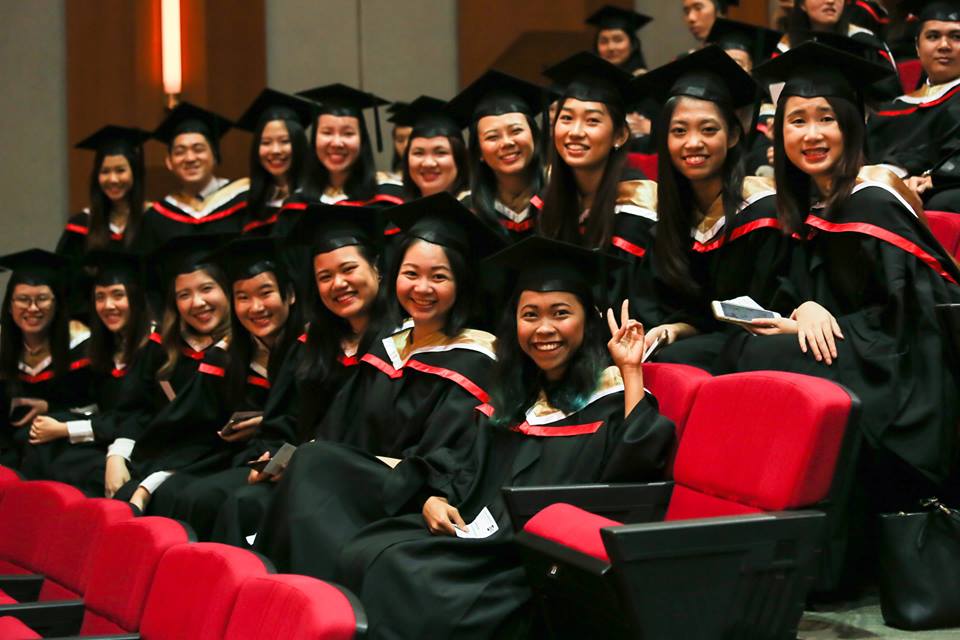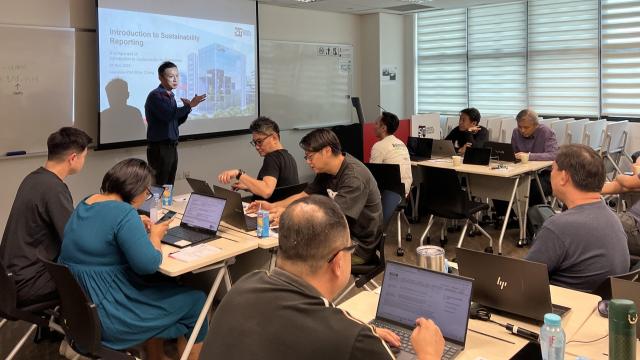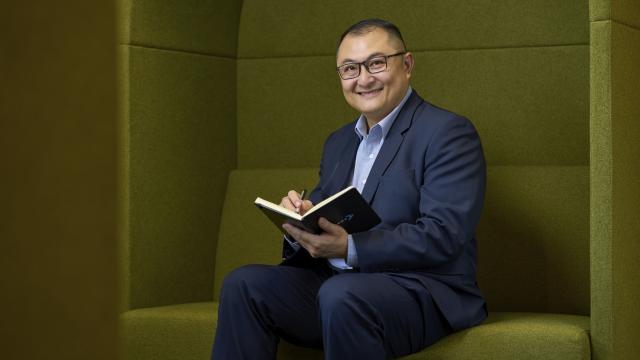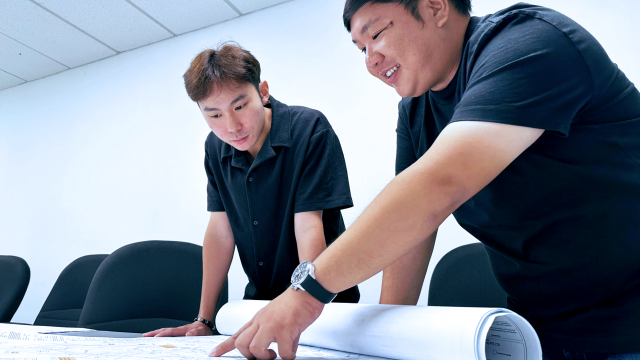
25 October 2017 – Graduates from the Singapore Institute of Technology (SIT) continue to be well received by industry, as they enjoy good employment rates and competitive entry-level salaries. The Graduate Employment Survey (GES) 2016 findings revealed that 89.0% or around nine in 10 SIT graduates in the labour force found jobs within six months of completing their final examinations, similar to that in 2015.
These findings[1] are based on the Joint GES[2] 2016, conducted by SIT and four other Autonomous Universities (AUs) – the Nanyang Technological University (NTU), the National University of Singapore (NUS), the Singapore Management University (SMU) and the Singapore University of Technology and Design (SUTD).
This is the third year that SIT has participated in this annual survey, which covers graduates from SIT’s 10 Overseas University (OU) partners in 28 degree programmes. This includes the first batch of graduates from the University of Liverpool’s Bachelor of Arts with Honours in Criminology and Security. 1,041 of SIT’s cohort of 1,230 fresh graduates participated in the survey[3], which took place from 1 March to 14 May 2017.
Key findings of GES 2016
77.1% of SIT graduates in the labour force secured full-time permanent (FTP) employment[4], compared to 82.9% in 2015. Employment rates for the Healthcare and Early Childhood sectors remain strong, with 96.7% of Allied Health graduates and 92.0% of Early Childhood graduates in FTP employment.
SIT graduates in FTP employment earn higher starting salaries than those surveyed in 2015. The median gross monthly salary increased by 4.7%, from $3,055 in 2015, to $3,200 in 2016. In particular, graduates from the Infocomm Technology and Healthcare programmes saw the highest increase, with their median gross monthly salary being in the range of $3,000 to $4,200.
Beyond full-time permanent employment, we observe that more SIT graduates have chosen to take up freelance employment[5], especially those in the design and arts sector. Around 2.5% of all SIT graduates in the labour force were in freelance employment in 2016.
Associate Professor Ivan Lee, Vice-President (Industry & Community), SIT, commented on the GES 2016 findings, “Given the challenging economic climate, our graduates continued to enjoy good overall employment, particularly in the healthcare and IT sectors. More SIT graduates are choosing to take up freelance employment, with a majority of them doing so voluntarily. The survey results affirm the university’s applied learning approach and emphasis on being industry-relevant. However, we do note the fall in full-time permanent employment of graduates from some of our Overseas Universities’ programmes. SIT will continue to strengthen our degree programme offerings to meet industry needs, scaling up the Integrated Work Study Programme for these degree programmes, so as to groom technically-grounded graduates who are well-prepared to contribute to the professional manpower needs of Singapore.”
Building on the strengths of the applied learning approach, SIT will be scaling up the Integrated Work Study Programme (IWSP) for more of its degree programmes, as it has shown encouraging results in facilitating the employment of SIT graduates. The latest batch of graduates who participated in the IWSP as part of their Accountancy course graduated in October 2017. 83 of the 96 graduates received job offers before graduation and six were offered positions above entry level.
[1] Details on SIT’s course-level results are available on MOE’s website
[2] The GES is conducted jointly by the five Autonomous Universities (NTU, NUS, SIT, SUTD and SMU) every year to collect information on the employment status of graduates six months after the completion of their final examinations. Due to different course completion dates, SIT conducts its survey in March to May annually, while NUS, NTU and SMU conduct their surveys in November to January, and SUTD conducts its survey in February to March.
[3] The graduates in 2016 are from SIT’s Overseas University partners. The pioneer batch of students from the SIT-conferred degree programmes graduated in February 2017 and their GES results will be published in 2018.
[4] Full-time permanent employment refers to employment of at least 35 hours a week and where the employment is not temporary. It includes those on contracts of one year or more.
[5] Freelance employment refers to arrangements where freelances are hired by a client company on a project basis, and operate their own business without employing any paid worker.
Singapore Institute of Technology (SIT) is Singapore’s university of applied learning. It aims to be a leader in innovative university education by integrating learning, industry and community as part of its unique pedagogy. Partnering world-class universities, SIT offers applied degree programmes targeted at growth sectors of the economy. SIT also aims to cultivate in its students four distinctive traits, or the SIT-DNA, which will prepare them to be ‘thinking tinkerers’, who are ‘able to learn, unlearn and relearn’, be ‘catalysts for transformation’ and finally, become ‘grounded in the community’.
For more information, visit www.SingaporeTech.edu.sg.



